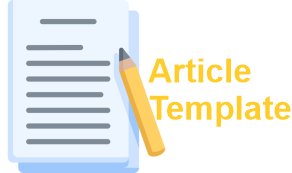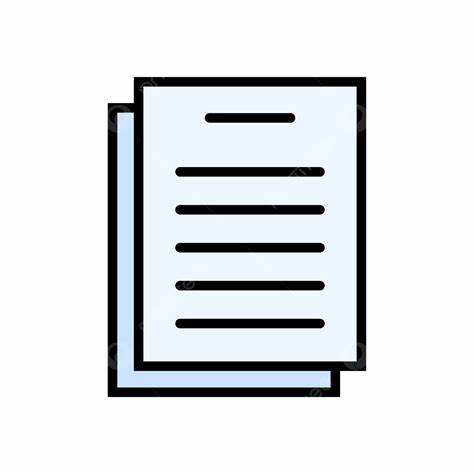AI Training with ChatGPT to Draft Diagnostic Assessments
DOI:
https://doi.org/10.23960/jpmip.v4i1.1123Keywords:
Diagnostic assessment, 2. Differentiated Instruction, chatGPT, Artificial IntelligentAbstract
Diagnostic assessment is important to consider in the success of differentiated learning. Only 18.5% of teachers at Widiatmika Junior High School prepare and compile diagnostic assessments as a basis for selecting differentiated learning strategies. Therefore, training on the use of artificial intelligence (AI) through ChatGPT was held to improve the ability of teachers to prepare diagnostic assessments at Widiatmika Junior High School. The training was conducted through a workshop consisting of theoretical and practical sessions. The results of the training showed an increase in teachers' understanding and skills in designing diagnostic assessments. Teachers' enthusiasm and active participation were seen in the practical session, where they were able to ask in-depth questions about the application of ChatGPT. This training successfully demonstrated the potential of AI in supporting the learning process. By using ChatGPT, teachers can develop assessments that are more effective and appropriate to the needs of students, thus improving the quality of education at Widiatmika Junior High School.
References
Abidah, L., & Hartono, H. (2023). Administering Online Writing Assessments in English Language Teaching: Challenges and Solutions. Jurnal Arbitrer, 10(2), 176–184. https://doi.org/10.25077/ar.10.2.176-184.2023.
Alifiana, M., Anekawati, A., & Matlubah, H. (2024). Penggunaan Tes Diagnostik Dalam Model Pembelajaran Berdiferensiasi. Prosiding SNAPP : Sosial Humaniora, Pertanian, Kesehatan Dan Teknologi, 2(1), 75–87. https://doi.org/10.24929/snapp.v2i1.3123.
Aprima, D., & Sari, S. (2022). Analisis Penerapan Pembelajaran Berdiferensiasi Dalam Implementasi Kurikulum Merdeka Pada Pelajaran Matematika SD. Cendikia : Media Jurnal Ilmiah Pendidikan, 13 (1)(1), 95–101.
Celik, I. (2023). Towards Intelligent-TPACK: An empirical study on teachers’ professional knowledge to ethically integrate artificial intelligence (AI)-based tools into education. Computers in Human Behavior, 138(May 2022), 107468. https://doi.org/10.1016/j.chb.2022.107468.
Cruz, S., Jimenez, D., Sun, Y., Kaiser, G., & Varas, L. (2024). Design and validation of initial diagnostic tests for preservice teachers as a tool for teacher education effectiveness. Journal of Curriculum Studies, 56(4), 392–412. https://doi.org/10.1080/00220272.2024.2322490.
Davis, F. D., & Davis, F. (1989). Perceived usefulness, perceived ease of use, and user acceptance of information technology. MIS Quarterly: Management Information Systems, 13(3), 319–339. https://doi.org/10.2307/249008.
Ekin, S. (2023). Prompt Engineering For ChatGPT: A Quick Guide To Techniques, Tips, And Best Practices. TechRxiv. https://doi.org/https://doi.org/10.36227/techrxiv.22683919.v2.
Hermansyah, wawan. (2023). Tantangan Implementasi Pembelajaran Berdiferensiasi Pelajaran Bahasa Indonesia Di Sekolah Dasar Negeri Kerekeh Kecamatan Unter Iwes Kabupaten Sumbawa. NIVEDANA : Jurnal Komunikasi Dan Bahasa, 4(2), 494–499. https://doi.org/10.53565/nivedana.v4i2.1072.
Hooftman, J., Olson, A. P. J., McQuade, C. N., Mamede, S., Wagner, C., & Zwaan, L. (2024). Time pressure in diagnosing written clinical cases: An experimental study on time constraints and perceived time pressure. Diagnosis, 12(1), 74–81. https://doi.org/10.1515/dx-2024-0125.
Irzawati, I., Unamo, A. F., Agnes, A., & Angelika, V. (2024). The Use of Chat GPT in ELT. IJELLACUSH, 2(1), 32–44. https://doi.org/10.59024/ijellacush.v2i1.674.
Jitpaisarnwattana, N. (2024). Idea Sharing: Using ChatGPT for Diagnostic Writing Assessment. Pasaa, 69(December), 561–574. https://doi.org/10.58837/CHULA.PASAA.69.18.
Junaidah, Ambiyar, Jalinus, N., Waskito, & Wulansari, E. (2023). Evaluasi Assesment Diagnostik dalam Merencanakan Model Pembelajaran Berdiferensi di SMK Negeri 2 Karimun. Jurnal PTI (Jurnal Pendidikan Teknologi Inofrmasi), 10(1), 48–54. https://doi.org/10.35134/jpti.v10i1.147.
Koehler, M. J., Mishra, P., & Cain, W. (2017). What is Technological Pedagogical Content Knowledge (TPACK)? Journal of Education, 193(3). https://doi.org/https://doi.org/10.1177/002205741319300303.
Liao, X., Zhang, X., Wang, Z., & Luo, H. (2024). Design and implementation of an AI-enabled visual report tool as formative assessment to promote learning achievement and self-regulated learning: An experimental study. British Journal of Educational Technology. https://doi.org/https://doi.org/10.1111/bjet.13424.
Mukhibat, M. (2023). Differentiate Learning Management To Optimize Student Needs And Learning Outcomes In An Independent Curriculum. QALAMUNA: Jurnal Pendidikan, Sosial, Dan Agama, 15(1), 73–82. https://doi.org/10.37680/qalamuna.v15i1.2386.
Ningrum, M., Maghfiroh, & Andriani, R. (2023). Kurikulum Merdeka Belajar Berbasis Pembelajaran Berdiferensiasi di Madrasah Ibtidaiyah. EL Bidayah: Journal of Islamic Elementary Education, 5(1), 85–100. https://doi.org/10.33367/jiee.v5i1.3513.
Punya, M., & Koehler, M. J. (2006). Technological Pedagogical Content Knowledge: A Framework for Teacher Knowledge. Teachers College Record: The Voice of Scholarship in Education, 108(6). https://doi.org/https://doi.org/10.1111/j.1467-9620.2006.00684.x.
Purba, M., Purnamasari, N., Soeyanto, Sylvia, A., Suwarna, I. R., & Susanti, E. I. (2021). Pembelajaran Berdiferensiasi ( Differentiated Instruction ). Pusat Kurikulum dan Pembelajaran.
Putra, A. E., Rohman, M. T., Linawati, & Hidayat, N. (2023). Pengaruh Literasi Digital terhadap Kompetensi Pedagogik Guru. Murhum : Jurnal Pendidikan Anak Usia Dini, 4(1), 201–211. https://doi.org/10.37985/murhum.v4i1.185.
Santos, J. M., & Castro, R. D. R. (2021). Technological Pedagogical content knowledge (TPACK) in action: Application of learning in the classroom by pre-service teachers (PST). Social Sciences and Humanities Open, 3(1), 100110. https://doi.org/10.1016/j.ssaho.2021.100110.
Shin, T., Razeghi, Y., Logan, R. L., Wallace, E., & Singh, S. (2020). AUTOPROMPT: Eliciting knowledge from language models with automatically generated prompts. ArXiv: Computation and Language, 4222–4235. https://doi.org/10.18653/v1/2020.emnlp-main.346.
Suryani, A., Loliyana L., Rohman, F., Sowiyah, Sugianto, & Khomsiyati, S. (2024). Artificial Intelligence sebagai Media Pembelajaran untuk Anak Usia Dini. Ceria: Jurnal Program Studi Pendidikan Anak Usia Dini. Vol 13, No 3. http://dx.doi.org/10.31000/ceria.v13i3.12176.
Thanh, T. T., & Thanh Loan, N. (2024). Positive Impacts of Chat GPT on English Teachers. International Journal of Current Science Research and Review, 07(06), 3860–3862. https://doi.org/10.47191/ijcsrr/v7-i6-35.
Tomlinson, C. A. (2011). Differentiate instruction in mixed-ability classrooms. https://d1wqtxts1xzle7.cloudfront.net/44098361/_Carol_Ann_Tomlinson__How_to_Differentiate_InstrucBookSee.org-with-cover-page-v2.pdf?Expires=1631251576&Signature=YZi5pSld61OpLx2~tuG4isXixDt0Sg9yLDjEz0yeUm1X~y576UCjpIIUsfAzAEMlyH2OtfXM~95owzfu8j8R6kQCZ3v6IE
Venkatesh, V., & Davis, F. D. (2000). A Theoretical Extension of the Technology Acceptance Model: Four Longitudinal Field Studies. Management Science, 46(2). https://doi.org/https://doi.org/10.1287/mnsc.46.2.186.11926.
Walter, Y. (2024). Embracing the future of Artificial Intelligence in the classroom: the relevance of AI literacy, prompt engineering, and critical thinking in modern education. International Journal of Educational Technology in Higher Education, 21(1). https://doi.org/10.1186/s41239-024-00448-3.
Zamfirescu-Pereira, J. D., Wong, R. Y., Hartmann, B., & Yang, Q. (2023). Why Johnny Can’t Prompt: How Non-AI Experts Try (and Fail) to Design LLM Prompts. Conference on Human Factors in Computing Systems - Proceedings. https://doi.org/10.1145/3544548.3581388
Zhai, X. (2023). ChatGPT for Next Generation Science Learning. SSRN Electronic Journal, January. https://doi.org/10.2139/ssrn.4331313
Zhou, Y., Muresanu, A. I., Han, Z., Paster, K., Pitis, S., Chan, H., & Ba, J. (2023). Large Language Models Are Human-Level Prompt Engineers. 11th International Conference on Learning Representations, ICLR 2023.
Downloads
Published
How to Cite
Issue
Section
License
Copyright (c) 2025 Jurnal Pengabdian Masyarakat Ilmu Pendidikan

This work is licensed under a Creative Commons Attribution-NonCommercial-ShareAlike 4.0 International License.




